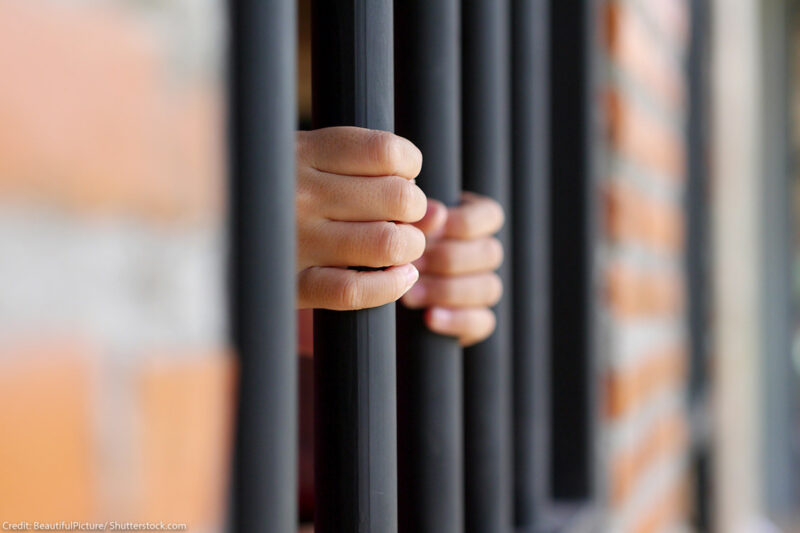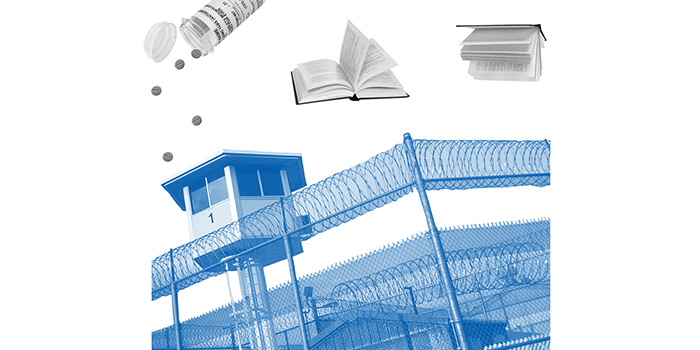The Painful Reality of Being an Incarcerated Mother


Many of us will celebrate Mother’s Day over the weekend by remembering or being present with women who raised us, or with our families. But for the more than 190,000 women incarcerated in the United States this weekend, there will be no celebration.
Close to 60 percent of these women serving prison sentences were the primary caregiver of their minor children before sentencing. All too often, a prison sentence tears them from their family connections and contact with their children, while severing their children from a vital source of emotional and financial support. State women’s prisons are often located in rural areas, with limited modes of transportation, and families struggle to visit.
As a result, families have very few in-person visits, and must rely on postal mail, or pay inflated prices for telephone calls and video contacts. Compounding the lack of connection, women in many state prisons cannot even hold in their hands and cherish a card or drawing sent by their children. Many prisons have done away with real mail, and now use vendors to intercept, scan, and destroy all postal mail, delivering poor quality printouts of the original letter to the incarcerated recipients weeks later for a fee.
In addition to women sentenced to prison, more than 2.4 million women spend at least one day in jail each year, and 80 percent of them are mothers of children under the age of 18. And more than 60 percent of women in our nation’s jails are presumed innocent and awaiting trial, jailed due to poverty and an inability to purchase their freedom by posting bail.
Children with mothers incarcerated in local jails often fare no better than those whose mothers are in state prisons: Some jails have completely banned in-person visitation to require all visits be done by paid video, not because of COVID, but to boost their bottom line. A 2015 study found that 74 percent of jails had banned in-person visits after putting video visits into place. Even when women are able to have in-person visits with their children, jail visits are often done through a plexiglass barrier. Women cannot hold, hug, touch, or kiss their children.
Although many more men are incarcerated than women in the U.S., women’s rate of incarceration has grown twice that of men in the past 40 years. Since 2009, while the overall number of people in prisons and jails has decreased, women have fared worse than men in 35 states. Women and families of color are disproportionately affected by this increase. Black and Native American / Alaska Native women are incarcerated at double their share of the population of women in the United States.

Women in Prison
The ACLU works in courts, legislatures, and communities to defend and preserve the individual rights and liberties that the Constitution and the...
Source: American Civil Liberties Union
Women often become entangled with the criminal legal system due to trying to cope with poverty, limited access to child care, underemployment or unemployment, unstable housing, and physical and mental health challenges. They get thrown into a legal system that criminalizes survival behaviors such as selling drugs or sex work, and policies that charge and arrest persons for being present when crimes are committed by others, “aiding and abetting” others, or fighting back against domestic violence. A study in California found that 93 percent of women incarcerated in state prison for a homicide of a partner were abused by the person they killed, and in two-thirds of those cases, the homicide occurred while attempting to protect themselves or their children.
Incarcerated women have high rates of histories of physical and sexual abuse, trauma, and mental health and substance use disorders. While incarcerated, women are more likely than incarcerated men to face sexual abuse or harassment by correctional staff, and they experience serious psychological distress due to incarceration and the conditions in prisons. Treatment in prisons or jails for mental health conditions, substance use disorders, and trauma is often nonexistent. Health care for physical medical conditions or pregnancy often is limited at best: Last year, through our lawsuit, we learned the Arizona Department of Corrections was inducing the labor of pregnant incarcerated people against their will. This came after we documented inadequate prenatal and postpartum care of women in Arizona prisons in 2019, including a woman with serious mental illness who gave birth alone, in the toilet of her cell, at a maximum custody unit.
So what can we do to honor incarcerated women and families? First, we can financially support the incredible work of community-based bail funds that help free mothers and bring them home to their children and families. Second, we can support criminal legal reform policies to stop mass incarceration.
The National Bail Out is a Black-led and Black-centered collective of organizers and advocates who are working to abolish pretrial detention and mass incarceration. They have coordinated with a variety of other groups, including Southerners on New Ground (SONG), to create the tactical mass bail out of #FreeBlackMamas to acknowledge the reality that incarceration of women disproportionately affects Black women. They work with partner organizations to post bail for incarcerated women year-round, but especially before Mother’s Day. This year, instead of (or in addition to) sending flowers to your favorite mothers, you can donate to National Bail Out or the 18 Black-led organizations they are working with across the country to help #FreeBlackMamas.
We also need to address the root causes of the incarceration of women in this country, which is often due to poverty. While drug or property offenses account for about half of the charges for which women are incarcerated, policies must also focus on reducing so-called “violent” offenses that women commit often in response to violence and abuse.
When we incarcerate women, we are causing irreparable damage to them, their families, and all of our communities.
